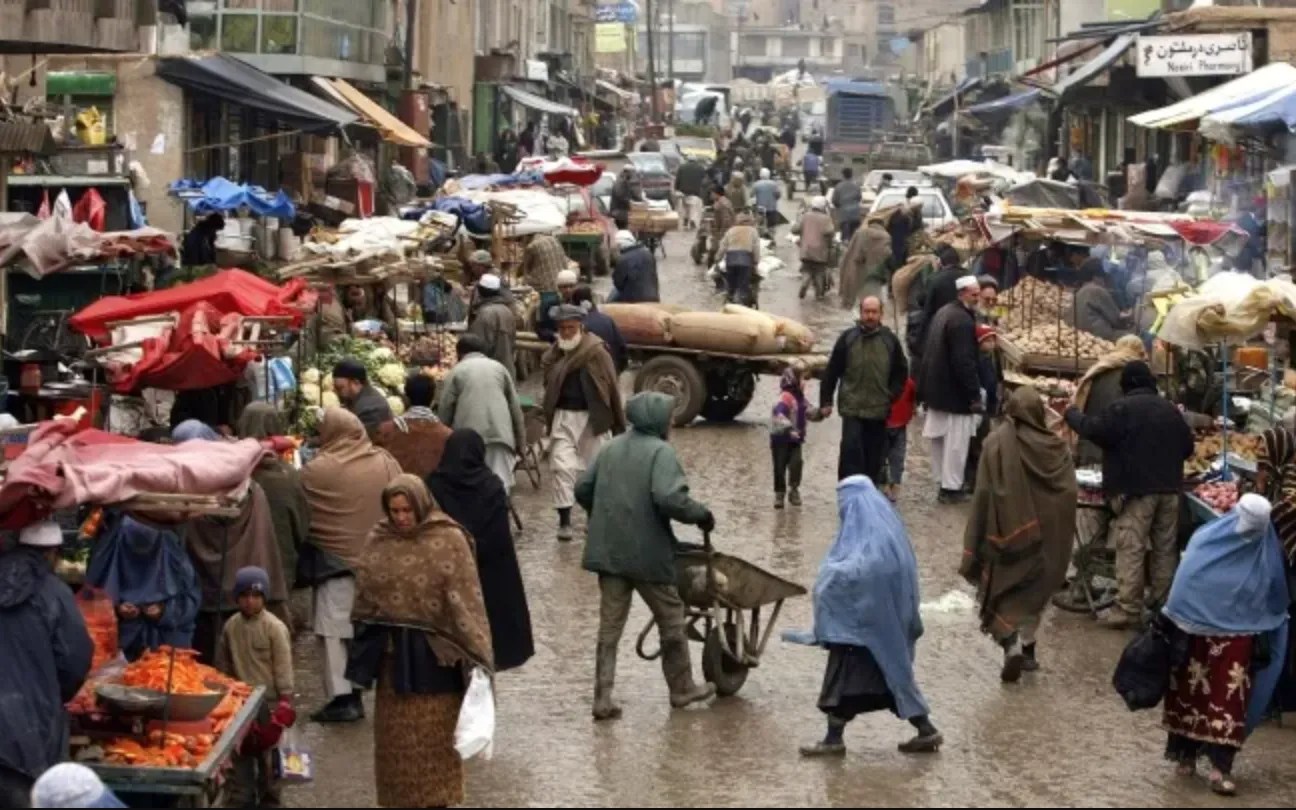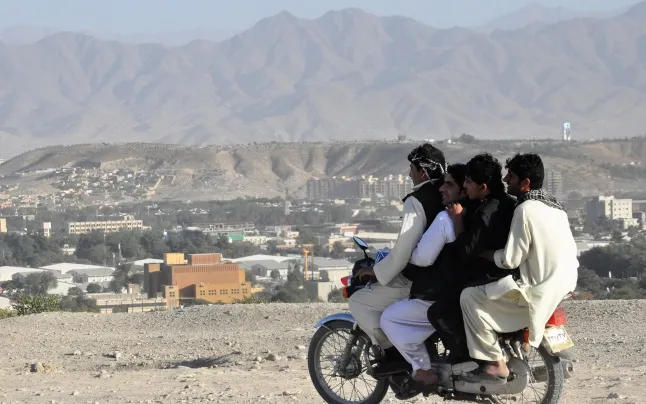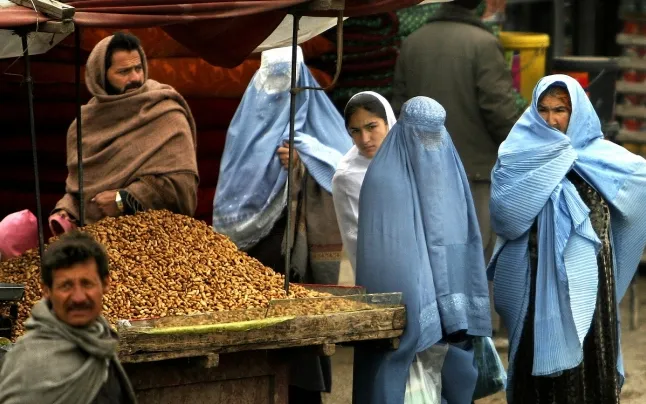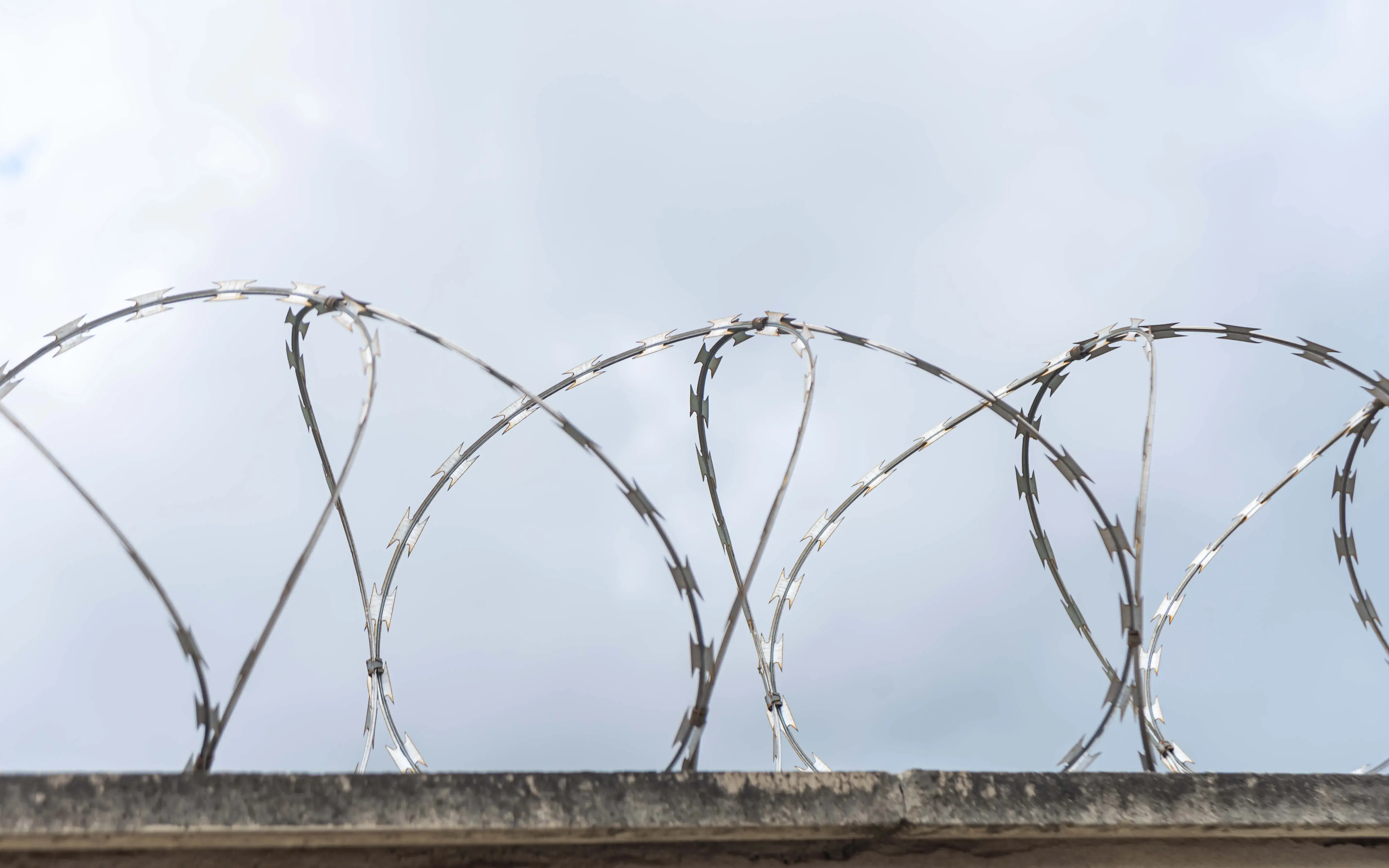The rise of fundamentalists threatens to aggravate the situation of a civilian population that has been severely punished by years of conflict resulting from collective irresponsibility.
Afghanistan has moved backwards. Two decades after the United States intervened in the country and ousted the Taliban from power in response to the 9/11 attacks, the country has once again fallen into the hands of the Islamic fundamentalist group, which now controls the country’s whole territory. The image of the Taliban entering the presidential palace in Kabul symbolises the culmination of a conquest which has taken place in record time and has been certified by the flight from the country of its president, Ashraf Ghani.
The Taliban have quickly declared an end to the conflict and have proclaimed the Islamic Emirate. All this has caused distress in the civilian population and scenes of chaos, such as those experienced at Kabul airport, where thousands of citizens have gone in the hope of leaving the country. At least five people have died trying to board a plane to leave a country that was already in a desperate situation before the ascent of the Taliban and is now facing a major humanitarian crisis.
“It’s a very sad situation, it’s clear that it’s not good for Afghanistan to fall back into the hands of the Taliban; the vast majority of the population will suffer the consequences, especially women", explains Centre Delàs researcher Alejandro Pozo, about the situation of a country that has been torn by war for decades.
A new problem for a severely punished civilian population
The return of the Islamic militia to power is a very hard blow—yet another one—for a civilian population that has endured the penalties of war and is now threatened by a further setback in their rights and freedoms. "The dramatic thing is that the civilian population—especially women, as is always the case—has been surviving for decades in an exhausted and ragged country, with all kinds of suffering and human rights violations in the face of the absolute complicity or indifference of regional and world powers," the director of Fundipau, Jordi Armadans, writes in an article on his blog
In this regard, and despite the fact that the Taliban are attempting to project a more moderate image, reports are already coming from many areas of the country where women’s freedom of movement and access to employment and education are already being restricted and the obligation to cover their bodies under the burqa is being imposed. It seems clear, then, that the return of the Taliban to power poses a danger to the human rights of the population, especially women.
A country shattered by foreign interference
The final victory of the fundamentalists has taken place in the blink of an eye, within the framework of a lightning offensive in which the insurgents have conquered the main provincial capitals one after another until they reached the capital in just a few weeks. Events have taken place at high speed and without almost any opposition since U.S. president Joe Biden announced the total withdrawal of U.S. troops from the Central Asian country in April.
"From a military standpoint, it’s difficult to explain how they came to power so quickly; the only options are that they’ve had a lot of internal support, a lot of external support, or both,” says Alejandro Pozo.
The Centre Delàs researcher believes that the main problem Afghanistan has faced in recent years has been foreign interference and calls “irresponsible” most of the international actors that have set foot in the country in recent decades, from the Soviet invasion in the 1980s to the American intervention in the early 2000s to the crucial role played by regional powers such as Pakistan, Saudi Arabia, Iran and Russia, among others.
"I think it's a mistake to focus exclusively on the United States; Afghanistan has been a kind of Risk board where different actors have moved their pieces based on their own interests," points out Pozo, who criticises that the interventions have only been military and no one has really thought about working to improve the country’s situation. "Afghan people have only mattered in terms of their instrumental role, for geopolitical gains," he says.
This position is shared by Jordi Armadans, a critic of the collective irresponsibility that has led Afghanistan to the current situation. "Putting peace, human rights and the well-being of the population at the centre probably doesn’t ensure good results. But not doing so at all leads to a present without a future, which is now being suffered and will continue to be suffered by Afghanistan. Learning this lesson after more than 40 years of collective irresponsibility should be the first and essential compensation for the hundreds of thousands of Afghans who have suffered and lost everything,” he writes.
The huge U.S. investment in Afghanistan, which has returned to its starting point twenty years later, has done little or no good. "In twenty years the United States has spent about a trillion dollars in Afghanistan, an amount that is 400 times the country's GDP from 2001, and in those years they have been unable to change the situation, which has continued being catastrophic, which means that the money was not intended for this purpose", points out Pozo, who believes that “the idea of improving the situation in Afghanistan has had more to do with political rhetoric in the West than with reality”.
Out of all this money, more than 70 billion euros, according to data published by the New York Times, have gone directly to training and furnishing with weapons, equipment and infrastructure the Afghan army, which has collapsed in record time and has offered almost no resistance to the advance of the insurgents.
A humanitarian crisis and a new wave of refugees
In any case, the advent of the Taliban is a collective failure that will be suffered by the civilian population, which, fearful of the memory of the theocratic regime imposed by the fundamentalist group between 1996 and 2001, has already started to flee the country. All this can trigger a wave of migration and a humanitarian crisis similar to that caused by the Syrian War. In this regard, the EU has already expressed its fear of a new wave of refugees.
However, the UNHCR has already warned that displaced women and children are suffering the most and explains that, since the beginning of the year, some 400,000 people have been forced to leave their homes and have joined the nearly 2.9 million who are still displaced inside the country as a result of the conflict. These figures, however, could be just the tip of the iceberg of a new wave of large-scale migration.









Add new comment